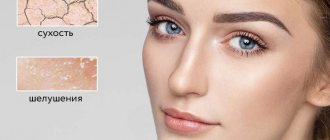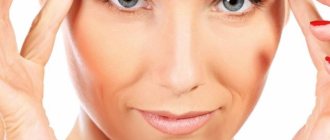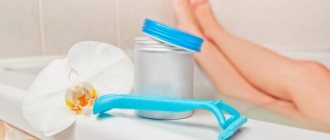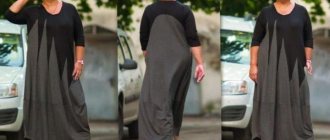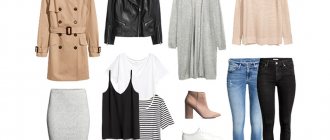Anti-aging skin care aims to eliminate or soften the signs of aging. The skin is the first to show age, but when this happens depends on genetics and lifestyle. Thus, the type of aging and skin type are genetically determined in us. And in your lifestyle, nutrition, sleep, bad habits and stress are important.
In this article we will talk about anti-aging facial care. When is it appropriate to start it, what is the difference between anti-aging care at different ages, how to choose the appropriate cosmetics. Remember, half the battle is in your hands, don't miss the chance!
Anti-aging care: when it's time
Most cosmetologists agree that before the age of 28, the use of anti-aging special products is not justified. They will only prevent the skin from working on its own. Yes, the first mechanisms of aging really start at 25+. But this doesn't mean that at 25 it's time to dive into hardcore anti-aging care.
What then to do if the quality of the skin is not satisfactory until the age of 27-28? At this age, early wrinkles may well be a concern. Prolonged stress or an unhealthy lifestyle especially contribute to this. Young people notice that their skin no longer recovers as quickly and efficiently as before.
Sometimes there is simply no way to get rid of stress. For example, a person has a harmful job: night shifts, flights, etc. Or the same situation of motherhood, when you have to sacrifice your comfort. In these cases, it is worth pushing for care. Not anti-aging, but regular everyday. Need to:
- Choose day and night creams to suit your skin type;
- Purchase additional care in the form of serum;
- Regularly cleanse your facial skin with a non-irritating product;
- Don’t forget about toning with a high-quality tonic;
- Once a week, make a mask to deeply nourish and restore your facial skin.
So, we agree on the age of 28-30 as ideal for early anti-aging care. What does it consist of? Now you'll find out.
From 35...or still from 27 years old?
There is an opinion among experts that the use of anti-aging products should be started when the situation requires it. In the vast majority of cases, this time falls on 35 years. It is at this age that the first clear signs of aging appear: dull complexion and a network of facial wrinkles. If you ignore them, then from year to year they will become more and more obvious and cannot be corrected.
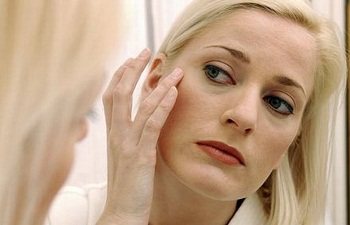
Cosmetics that should be used from 35 to 40 years old have a slight lifting effect. As a rule, manufacturers indicate age restrictions on the packaging, but if there is no age mark, then look for something like the phrase “against the first signs of aging.”
The time to start using anti-aging cosmetics may shift to 25-27 years due to:
- natural dry skin,
- active use of decorative cosmetics,
- neglect of proper makeup remover,
- tendency to excessive tanning in a solarium or on the beach.
All these factors lead to early skin aging and, as a result, the need for special care. If you have noticed the first age-related changes in yourself and you are at least 25 years old, then you need to start using anti-aging cosmetics in a course. Its duration depends on how advanced the situation is, but on average 3-6 months of using active remedies is enough to “turn back the clock.” After this, you can switch to regular cosmetics.
Features of anti-aging care from 30 to 40
The first subgroup is 30-35 years old. At this age there are already wrinkles, but in general the changes are quite uncritical. The skin is still quite elastic, the contour of the face is clear. And if a person takes care of himself, maintains a healthy lifestyle and has good genetics, age-related changes can be minimal.
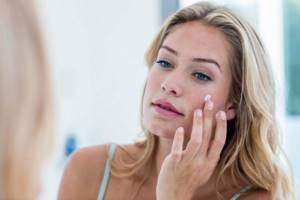
They still don't sell you wine without a passport? Great, the main mission of 30+ is to preserve this youth for as long as possible. You can connect the first special equipment, but light and delicate. You don't need shock dosages for mature skin yet.
Here are the main rules for anti-aging skin care for people aged 30+.
- Complete daily facial care, morning and evening. If at 20 you had one cream and foam for washing, then at 30+ you should have a full set. The skin won't forgive you anymore!
- Use day cream with SPF. Sun protection is also important for young people, but after 30, when the aging process noticeably accelerates, it is simply mandatory;
- At 30+, it is important to really thoroughly cleanse your skin of dirt and makeup. Under no circumstances should you go to bed with your face uncleaned, especially with makeup. Just like painting dirty skin. You are facing not just pimples like you did at 20, but also new wrinkles;
- Add eye cream to your arsenal if you haven’t used it before. The area around the eyes has the thinnest skin, which is highly susceptible to aging;
- Include retinol (a form of vitamin A), but don't go overboard with the dosage. Retinol is the first anti-aging component that can be introduced into everyday use. It is known for its smoothing properties. At 30, 1% retinol is enough; you need to apply it at night, 3-4 times a week. In subsequent years, you can slightly increase the dosage;
- Be sure to exfoliate your skin. And not with a scrub, but preferably with peeling. Peels are made with acids, and they provide deeper cleansing. The main thing is to choose the right product. If you are 30+ you need to do peeling 2 times a week (soft!).
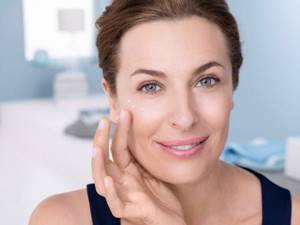
With the onset of 35 years of age, care should intensify. Age-related changes become more pronounced, and the contour of the face begins to slowly float. The skin is no longer as elastic as in youth, and pronounced creases form in some places. And the skin becomes thinner.
Nevertheless, the hormonal background is usually still in order, which means that a lot still depends on care and lifestyle. And what is added in care:
- You can start attending various auxiliary procedures for the skin: mesotherapy, biorevitalization. It is still not recommended to resort to harsh measures such as laser resurfacing;
- Face masks need to be done more often, even on a daily basis (there are such products). For example, night leave-in;
- Choose products with a natural composition, with a minimum of ambiguous and harmful ingredients. Your task is to reduce stress on the skin as much as possible;
- Focus on intense hydration. Add active serum, buy creams with a high concentration of hyaluronic acid;
- It would be nice to involve a professional facial massage: it can significantly slow down the aging process. Sculptural and buccal massage is especially good.
History of anti-aging medicine
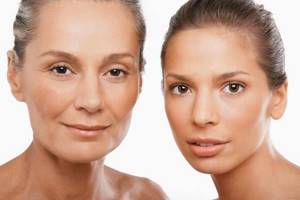
Since ancient times, people have cultivated youth and beauty. The famous Queen Cleopatra paid great attention to her appearance. Many of the recipes that she used in an effort to preserve her youthful body for as long as possible have survived to this day. Thus, a special body scrub, which included cream and sea salt (300 g of salt per 1/2 cup of cream), became very popular. The mixture had to be rubbed into the skin for 10 minutes and then washed off with water.
Ancient Greek beauty salons, which appeared in the 2nd-3rd centuries AD, were called “gynecea”. Witches worked in these establishments. They owned a huge number of recipes for face and body care. For example, with the help of ox bile it was possible to get rid of excessive pigmentation, cow placenta helped to achieve smoother skin, and an extract from calf genitals relieved dermatitis. Other countries also sought to rejuvenate themselves in different ways. Thus, the ancient Romans adopted the use of donkey milk and astringent mixtures to care for the skin.
Of course, anti-aging medicine is a body of knowledge and experience gained by ancient scientists who studied the aging process. But now the main emphasis is on modern data from medicine and cosmetology. The latest technologies, sophisticated equipment, combined with research results help to successfully fight aging. Now there is a whole anti-age industry, which offers a wide range of services to preserve youth, ranging from simple masks to hardware cosmetology.
The term "Anti-age" was coined by the American scientist C. Ronald in the mid-1980s. He considered aging a treatable disease. Since the 1990s, this area has become a separate specialization in medical science. Quite quickly, anti-aging medicine has grown into a modern clinical field. It is based on the achievements of many areas that study humans.
Features of anti-aging care from 40 to 50 years
At the age of 40-45, the normal course of all processes in skin cells noticeably slows down. However, even at this age you can still look quite youthful if you take care of yourself (without salon hardcore!) and maintain a healthy lifestyle.
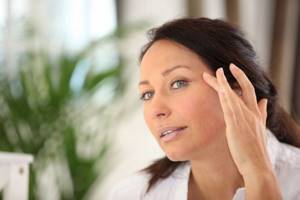
- Collagen reserves are decreasing;
- There are more and more wrinkles;
- The oval of the face undergoes gradual deformation;
- The skin becomes noticeably drier than before;
- The level of the female hormone estrogen decreases, which also does not benefit the skin.
Therefore, the rules of anti-aging care will have to change a little.
- It's time to choose really high-quality day and night creams. The daytime one should provide good hydration, the nighttime one should have a rich nutritional composition. Intense hydration is still your priority;
- Actively use cosmetics labeled anti-age. Its composition is selected specifically for the needs of the skin at your age; ordinary cosmetics may no longer be so effective;
- Switch to more concentrated peeling products, light ones are no longer enough. But there’s no need to be harsh: stay at medium concentration;
- It is better to give preference to expensive pharmacy cosmetics. The quality of care products for 40+ is of great importance.
As for skin care after 45 years, new nuances appear here. Hormonal surges become pronounced. Jowls and bags under the eyes are already forming, and the skin is drying out. What to pay attention to in addition to the above:
- Actively use products with ceramides and hyaluronic acid to retain water in cells;
- Lean on peptides;
- Enrich your products with vitamins A and E to nourish the skin and stop oxidation;
- Introduce cosmetics with a whitening effect, since active skin pigmentation begins closer to 50;
- Don't forget about the skin of your neck and décolleté. The same products are suitable for her as for the face. But it is better to purchase separate ones;
- Focus on stimulating your facial muscles. Go to the salon for appropriate procedures: myostimulation, massages. This needs to be done in courses, but on a regular basis. Better - all the time.
Anti-aging and aesthetic medicine: what is the difference
The concept of anti-aging medicine in Russia is interpreted differently, because there is no single regulatory or legislative framework regulating this area. You can often find simple aesthetic techniques for mechanically eliminating signs of aging, billed as anti-age procedures.
True anti-aging medicine does not focus only on a person’s appearance, but is aimed primarily at eliminating problems within the body. With its help, you can optimize and improve the functioning of various organs and their systems. As a result of proper exposure, the following effects are achieved:
- Life expectancy increases, which is ensured by the elimination of a whole set of negative factors (including lifestyle disorders, lack of vitamins and microelements in the body, genetic predisposition to various diseases, hormonal imbalance, etc.);
- The quality of life increases (in physical, psychological, sexual and other aspects).


It is wrong to say that one direction is worse or better. Both anti-aging and aesthetic medicine are important. Each of them solves a certain range of problems, and they can overlap in the field of combating the signs of aging. But even in this case, they are not competitors, but only complement each other.
Features of anti-aging care after 50 years
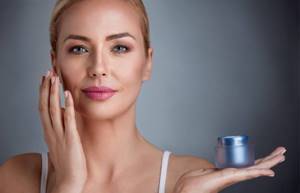
After 50, you can still look dignified and youthful if you devote enough time to proper self-care. And if a person has approached the issue irresponsibly all his life, then even good genetics is unlikely to save him.
After 50 there are the following features:
- The reserves of collagen and elastin are quite depleted;
- The complexion becomes dull, the skin may peel;
- The skin sags significantly;
- Lots of pigment spots.
And what to do at this age, how to change your regular care:
- Try professional salon peeling; home cleansing is no longer as effective;
- Switch to specialized anti-aging cosmetics, forgetting about all the folk recipes - this is guaranteed not to work at this age;
- You can try laser technology for skin rejuvenation. The main thing is to seriously choose a salon and a specialist.
In general, after 50, the salon should be your best friend, because home care is not nearly as effective for mature skin. Don't stop relying on professional facial massage.
Problem of choice
The second most difficult task after recognizing the need to use anti-aging skincare products is finding and choosing them. Which anti-aging cosmetics are good - only your skin can answer this question. However, it is in our power to choose the most suitable option from the point of view of “price-effectiveness” and provide comprehensive skin care, giving it the maximum of everything it needs, because these are the problems that modern anti-aging cosmetics solve. The rating of skincare products with a clear anti-aging focus divides them into traditional and so-called organic, that is, those that contain a high proportion of ingredients grown using a special “clean” technology. Recently, organic cosmetics have been brought to the forefront of the fight for youthful skin.
How to choose the best anti-aging care
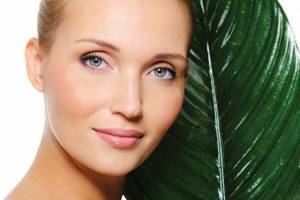
After reading all the recommendations, one question remains: how to choose the most optimal anti-aging care? This should be done primarily according to skin type and age category. Under no circumstances should you take a higher category, that is, a cream for 35 years old at 30. This is fraught with deterioration of the skin condition.
Next, pay attention to the composition. The following ingredients should come first in anti-aging cosmetics:
- Vitamins A (retinol), E (tocopherol), C;
- Vitamin B3;
- Collagen;
- Hyaluronic acid;
- Peptides;
- Coenzyme Q10;
- Fruit acids;
- Snail slime.
Also, anti-aging day creams should have a sunscreen. Or purchase protective cream separately, and do not forget to reapply during the day if the weather is sunny. And in winter too!
The older you get, the more intense and active formulas you need.
The thickest and most nourishing creams, for example, are best purchased after 45-50 years. Serums are also heavy artillery, and at a younger age they are best used in courses rather than continuously. Buy Christian Breton anti-wrinkle eye cream for 1699 rubles with delivery throughout Russia —->
When does the aging process begin?
Everyone knows that the aging process begins at about 25 years of age. However, this does not mean that after 25, signs of aging will certainly appear on your face the very next day in the morning
